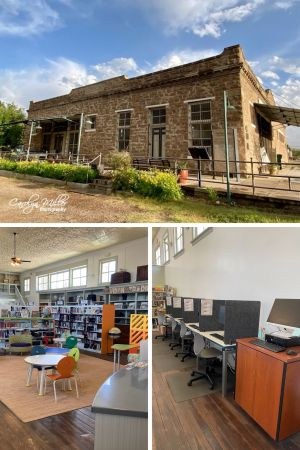
LOCATION
100 Memorial Square
Fort Davis, TX 79734
Phone: (432) 426-3802
Fax: (432) 426-2225
Email
library@jeffdaviscounty.texas.gov
HOURS
Monday - Tuesday: 9 am - 3 pm
Wednesday: 12 pm - 6 pm
Thursday - Friday: 9 am - 3 pm
Saturday: 9 am - 1 pm
Sunday: Closed
You can pick up reserved materials 24/7 in our lockers.